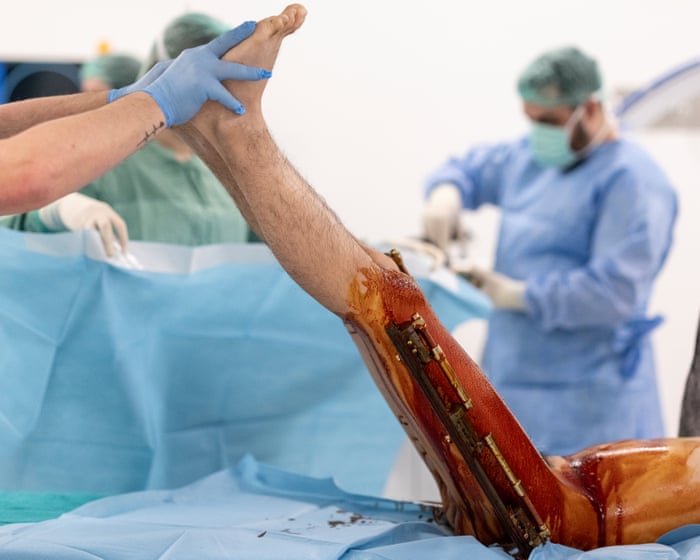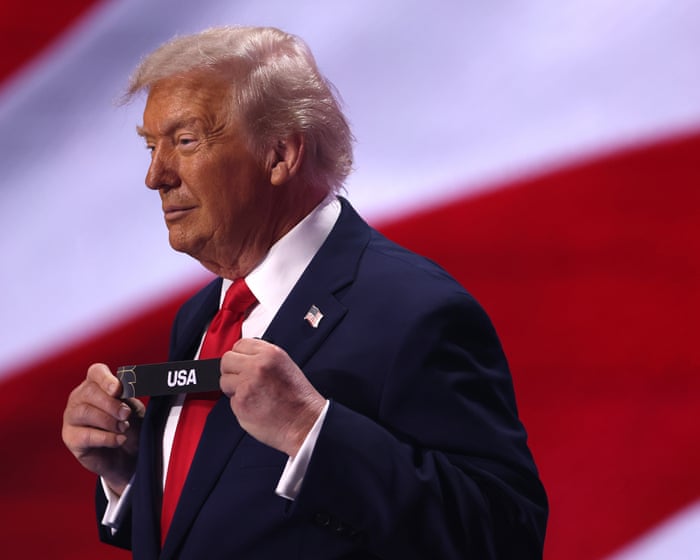It all started with a lighthearted complaint about Scotland’s summer weather and grew into a worldwide discussion about history, migration, and diversity on both sides of the Atlantic.
Last week, Torgi Squire posted a TikTok that many Scottish parents could relate to: why does the rainy summer weather always clear up just as the kids go back to school? The 43-year-old high school teacher from Glasgow ended with his usual sign-off—wishing everyone “a belter of a day”—and didn’t think much more of it. But the internet had other plans.
A US weather reporter shared the post, and soon Squire’s comments were filled with African Americans expressing surprise and delight at hearing a Black man with a strong Scottish accent. The conversation kept growing: Black Scots on TikTok found themselves answering questions from Americans and responding with sharp, playful humor. The hashtag #blackscottishtiktok sparked thousands more posts.
“It’s been a whirlwind,” said Squire, who teaches design and technology. His original video has nearly 4 million views, and he’s gained over 200,000 new followers.
“Americans are often in a bit of an echo chamber because of their media,” he noted. “Their main references for Scotland are usually Braveheart, Brave, or Shrek. They don’t seem very aware of the diaspora, especially in the UK, which might explain their curiosity. But it’s not just Americans—I’ve had comments from people in England too. There’s still surprise on both sides of the Atlantic at a Black person with a Scottish accent.”
Ellie Koepplinger, who creates content about race and politics, observed: “Trump has made America so hostile toward Black people that hearing so many talk positively about life in Scotland has drawn a lot of interest from those eager to leave the US.”
Scotland today is more diverse than when Squire was growing up in the 1980s. “Out of 1,400 kids at my secondary school, only four were Black—and three of them were related to me,” he recalled. “In my experience, Scotland is a welcoming place. There’s still racism, but it’s isolated, and Scottish people are good at calling it out. Maybe because there are fewer Black people here than in places like America, we tend to treat each other more like a community.”
When 28-year-old Koepplinger saw the initial buzz around Squire’s content, she thought, “This is going to be huge.” She added, “Then other Black Scottish people started joining in, and it was really exciting.” Having grown up in Glasgow and lived in the US for nine years, she shared her own perspective on being mixed-race in Scotland: “It feels like people are finally understanding that we have our own racial dynamics here.”
She also pointed out that the interest from the US has a practical side: “With so much hostility toward Black people in America under Trump, hearing positive experiences from Scotland has resonated with many who are seriously considering leaving.”
The surge in content has also sparked meaningful conversations among Black Scots themselves. Koepplinger added, “It’s been interesting to hear others talk about the racism and challenges they’ve faced in Scotland. The Black community here is fairly small and spread out, but it’s a population that’s excited to grow.”
Comedian Roy Wood Jr., host of CNN’s US version of Have I Got News for You, has been interviewing Black Scots, adding to the visibility.
Manny Daphey, a 20-year-old student, soon found his own content boosted by TikTok’s algorithm. His following doubled as Americans flocked to his videos. “I was pretty blown away,” he said. “Suddenly, everyone was interacting, and it felt like I was speaking to my—”He describes the response as overwhelmingly positive, with just a few negative remarks. “Lots of Americans are fascinated by the idea of living in Scotland and say they want to visit,” he notes. Unsurprisingly, some women have also expressed admiration for his good looks and Scottish accent, which he says American women can be “very direct” about.
Meanwhile, Roy Wood Jr., a comedian and host of the U.S. version of Have I Got News For You, arrived in Edinburgh a few days ago expecting to enjoy the festival. Instead, he’s been swept up in a TikTok journey, traveling across central Scotland to interview Black Scots and show his American audience that they do, in fact, exist.
In one post, Wood points out that many Black Americans aren’t aware of Black Scots because U.S. schools “barely teach them about Black people in America.” He adds, “People might laugh at Americans not knowing there are Black people in Scotland, but it really highlights the differences in education systems and what governments choose to include in history.”
Through his interviews, Wood noticed a common theme: Black Scots are finding new ways to connect online in a manner that wasn’t as common offline. “Coming from the U.S., I noticed there aren’t specific Black neighborhoods or cultural enclaves in Scotland, so there’s a shared feeling of, ‘Now we’ve found each other.'”
Wood met up with Squire in Glasgow, and the two made a video together. “It’s a chance for Black people across the diaspora to talk with one another,” Wood explained.
Squire added, “The conversations I’ve had over the past week have really enriched my life. It makes me happy to see people coming together.”
Frequently Asked Questions
Of course Here is a list of FAQs about the topic Beyond Braveheart Black Scots gain TikTok fame with African American audiences
General Beginner Questions
Q What is this Black Scots TikTok trend about
A Its about Black Scottish people creating videos that showcase their unique identitytheir Scottish accents culture and humorwhich has resonated strongly with Black American viewers on TikTok
Q Why are they called Black Scots
A Its a simple term to describe people of African or Caribbean descent who were born and raised in Scotland blending that heritage with their Scottish nationality
Q Who are some famous Black Scottish TikTokers
A Creators like courtneyak and moyoak have gained massive followings They often post videos reacting to cultural differences or just talking in their Scottish accents
Q Why are Black American audiences so interested in this
A For many its fascinating and refreshing to see people who look like them but sound completely unexpected It challenges stereotypes and creates a fun relatable cultural exchange
Deeper Advanced Questions
Q How does this go Beyond Braveheart
A Braveheart represents the stereotypical historical image of Scotland This trend moves beyond that by showing the modern diverse and multicultural reality of the country today
Q Is this just a novelty or is there a deeper cultural connection
A While the initial draw might be the surprise of the accent many conversations delve into shared experiences within the African diaspora discussions on identity and the universal aspects of Black culture across different countries
Q What kind of content do these creators typically make
A Common formats include
POV skits about growing up Black in Scotland
Storytimes about cultural misunderstandings
Dialogue challenges
Reaction videos to American culture and vice versa
Q Has this trend faced any criticism or problems
A Occasionally some comments can be fetishizing or reduce the creators to just their accent Theres also the broader challenge of navigating online spaces as a Black creator dealing with trolls and ignorant questions



